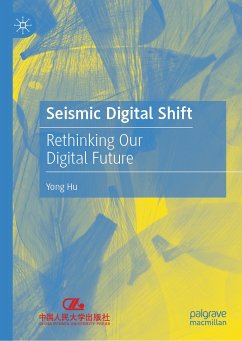This book is an in-depth study on the past, present and future of digitalization, an important contribution to the literature on the development of the digital economy in China. The technological revolution in telecommunications has brought a "seismic shift" - the periphery has moved to the center, accelerating the emergence of a new digital world. The adoption and integration of advanced digital technologies such as 5G mobile networks, the Internet of things (IoT), cloud computing, artificial intelligence, big data analysis and robotics means that the traditional economy, with its organizational, productive and governance systems, is merging with the digital economy, with its innovative features in terms of business models, production, business organization and governance. This makes the digital transformation process highly dynamic and complex, thus challenging many aspects of economies and societies. The author discusses not only what digital transformation means for businesses, butalso its impact on society at large, inspiring readers to understand China and the world and think about what digital future we would like to have.
Hu Yong is a Professor in the School of Journalism and Communication at Peking University. He is committed to discovering interesting things at the intersection of culture, technology and politics, especially emancipatory cultural practices, contours of the network society, digital economy and management, and human subjectivity.
Dieser Download kann aus rechtlichen Gründen nur mit Rechnungsadresse in A, B, BG, CY, CZ, D, DK, EW, E, FIN, F, GR, HR, H, IRL, I, LT, L, LR, M, NL, PL, P, R, S, SLO, SK ausgeliefert werden.









